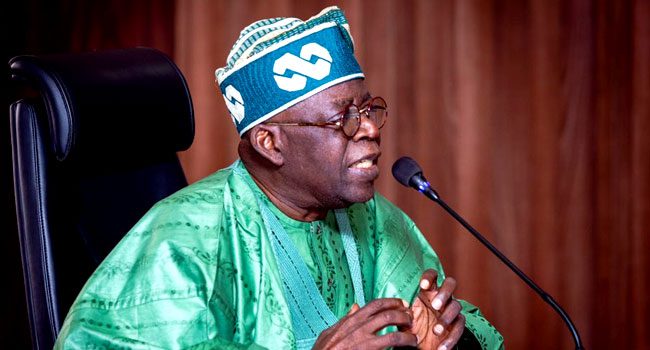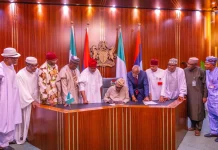In a recent media chat, President Bola Tinubu firmly stated that there will be no reversal on the ongoing tax reform bills, emphasizing their necessity in modernizing Nigeria’s tax system. He described the reforms as essential to eliminating outdated colonial assumptions within the nation’s tax framework.
During the televised discussion, Tinubu highlighted the controversy surrounding the tax reforms, which had led to the House of Representatives suspending debates on the bills due to pressure from governors of the 19 northern states. While the reforms have found support in southern regions, northern leaders express concerns over potential economic disadvantages and marginalization.
Borno State Governor Babagana Zulum criticized the haste with which the tax reform bills were being pushed through the legislative process, pointing out the lengthy deliberation required for previous significant legislation. He warned that the proposed changes could negatively impact both northern and southeastern states.
Despite the criticism, Tinubu maintained that the tax reforms are beneficial, aiming to widen the tax base while protecting vulnerable populations from undue taxation. He acknowledged that while tax reforms often face opposition, they are crucial for the country’s economic evolution.
On the topic of subsidy removal, Tinubu expressed no regrets, stating that the decision was vital for the nation’s financial health. He remarked that the country had been spending its future by subsidizing fuel for neighboring countries, stressing the need for fiscal responsibility. He dismissed calls for a phased removal of subsidies, asserting that it would only exacerbate financial issues.
The President also addressed the recent economic hardships tied to subsidy removal, urging Nigerians to manage their resources wisely. He emphasized that the government must cut unnecessary expenditures and focus on sustainable financial practices.
Tinubu outlined his administration’s plans to reduce inflation from 34% to 15% by boosting local production and minimizing imports, which he believes is crucial for national prosperity. He encouraged supporting local agriculture and manufacturing, particularly in the pharmaceutical sector.
Tragically, the President also responded to recent stampedes during food distribution events, attributing the incidents to poor organization by event planners. He called for better management and discipline within society to prevent such tragedies in the future.
As part of his broader anti-corruption strategy, Tinubu highlighted the removal of fuel subsidies as a significant step in curbing smuggling and ensuring that Nigeria’s petroleum resources benefit the country. He noted that anti-corruption efforts cannot fully eradicate the problem but can significantly reduce it through various mechanisms, including wage increases and better access to education.
In conclusion, Tinubu reaffirmed his commitment to the tax reforms and subsidy removal, framing these actions as critical for Nigeria’s economic future and the well-being of its citizens.










